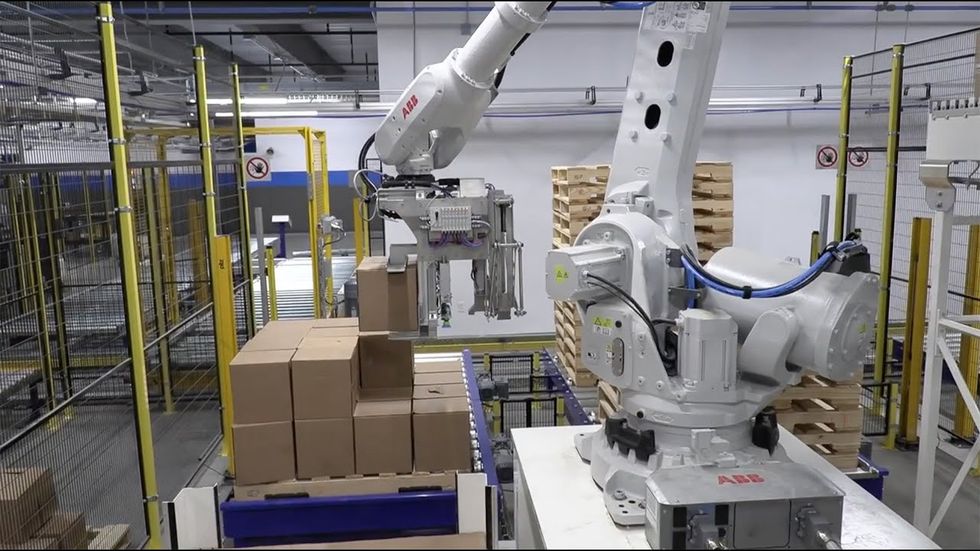More than the typical standard solution
Duration: 0:04:24
Release Date: Mar 29, 2022
When global health care company Fresenius Kabi sought to expand its United States operations with a new product line, it followed its long-held strategy of manufacturing its products in the country or region where they are used. The German-based firm has three manufacturing sites in the U. S. to serve its hospital and clinic customers in the American market, so it was an easy decision to invest in expanding an existing site in Wilson, N.C. The Wilson site manufactures generic medicines in pre-filled syringes. The new operation is for the production of IV (intravenous) solutions that provide fluids and medicines for patients in clinics and hospitals. Automating processes at the Wilson site was important to assure safety, accuracy, and precise handling of the solutions.
"This facility is the most automated and integrated of our three production facilities operating in the US," says Wolfgang Salrein, vice president, expansion project, at Fresenius Kabi. "The new operation is capable of producing million units of standard solutions annually."
To provide space for the new operations, a rack-supported high-rise building was erected to house an automated storage and retrieval system (AS/RS) from Stoecklin Logistics. The three-aisle system contains 10,200 pallet positions where finished goods are stored until ready to ship. Most products spend about a week in the temperature-monitored storage, during which time they naturally cool following their sterilization during the manufacturing processes.
A FLUID FLOW
To begin the flow processes in Wilson, the chemical fluid mixtures are produced in the adjacent plant and are filled into the intravenous non-PVC bags. The bags are next automatically packed using robots with articulating arms. From there, additional robots palletize the cartons into neat, perfect stacks. A Stoecklin transfer car then picks up a stacked pallet and delivers it to one of the facility's stretch wrappers and then the load is conveyed to the automated storage and retrieval system. The Stoecklin control software works with the facility's SAP management system to assure that the status of each batch is carefully monitored throughout the product journey.
"What's really great about this system is the high-rise keeps everything consolidated in a vertical format, which is integrated to SAP and you have a track and trace system," adds Michael West, senior project engineer. He says the automation makes it much easier to find product when it is ready to ship. "You don't have a big floor plan where you have to go all over to actually find what you're looking for. It's all condensed and it is efficient," he says.
When ready for shipment, the three storage cranes working within the AS/RS retrieves the pallets and discharges them onto a takeaway conveyor for transport to a shipping area. Upon arrival, another transfer car delivers the pallets to staging lanes where the pallets are held temporarily until trucks are ready for loading.
The automation of the warehouse has reduced labor costs and nearly eliminated forklift traffic, while also providing gentle handling to maintain product integrity.
"If you can automate a process, you can get a more reliable and consistent product and you can eliminate some human error. This leads to a better-quality product for our customers and ultimately for the patients that use our products," explains Christi Mitchell, engineering and maintenance manager. "The entire team was impressed with the speed and the efficiency that the warehouse was put together by the Stoecklin team. They came in and it was amazing and fluid," she adds.
 Sponsored By Stoecklin Logistics
Sponsored By Stoecklin Logistics



























